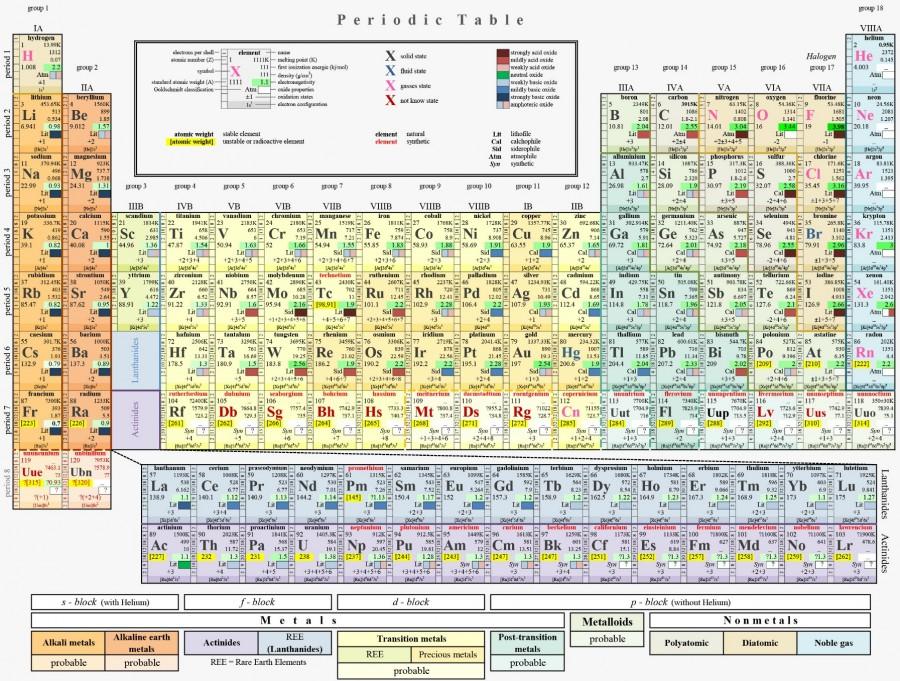A new period for the periodic table
photo courtesy of creative commons
The last version of the periodic table before the recent discovery of elements.
January 11, 2016
Thanks to scientists from America, Russia and Japan, all of your textbooks containing the old periodic table are now out of date. The final four elements of the periodic table’s seventh row have now been discovered. Maybe this will get our teachers to finally stop using the same dusty old textbooks.
The discovery was recognized by the International Union of Pure and Applied Chemistry (IUPAC) on Dec. 30. They verified that Japan discovered element 113, and that the US and Russia discovered elements 115, 117, and 118. IUPAC’s verification of the four elements makes the first discovery of elements since 2011.
The new elements are yet to be named but IUPAC recommends that when elements are named they follow the guidelines IUPAC established in 2002: In keeping with tradition, elements are named after a mythological concept or character (including an astronomical object), a mineral, or similar substance, a place or geographical region, a property of the element, or a scientist.
Although this discovery may be adding a little but more to the already large list of elements to memorize, students seem excited about the recent discovery.
“It’s always cool to have new innovations in science,” freshman Victoria Riehle said.
Students are also interested in the use and potential of these new elements.
“I think it’s cool that they were able to discover new elements and it’ll be interesting to see how they use it in real life applications,” sophomore Arvind Govinday said.
However, it should be noted that these new elements only existed in a lab for less than a second before decaying. It appears the elements may not have as much use as we would like due to their short life.
“Many of the lower elements are mainly just used in the lab and not very useful,” Govinday said.
Another thing to keep in mind is that the new elements were assumed to be in existence and written as unknown in the periodic table. Many question whether there are more elements that we don’t already know exist, perhaps another row on the periodic table we have yet to discover, or if we have finally reached a point where we have discovered all elements possible. Some think there will always be more to find.
“I think there’s always more things we can discover with science,” Riehle said. “I don’t think we’ll ever find everything that we can discover with science.”






